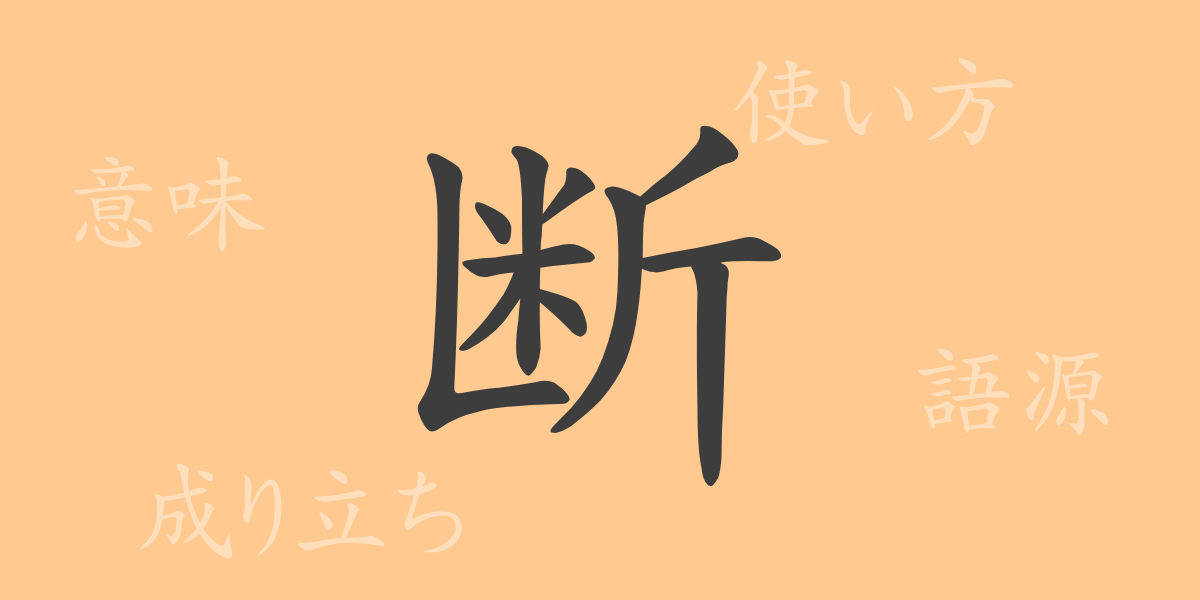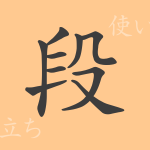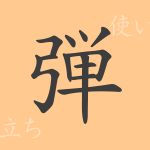The meaning of a single Kanji character can sometimes be deep and lead us into a world of extensive knowledge. One of the commonly used Kanji in Japanese is “断” (だん) (dan). This character is frequently used in daily life and appears in many idioms, proverbs, and phrases. In this article, we will delve into the origins, meanings, usage, and readings of “断”, as well as its stroke count and radical. Furthermore, we will explore idioms and expressions that use “断” and uncover their meanings.
Origins of “断” (だん) (dan)
The Kanji “断” has its origins in ancient Chinese oracle bone script. Originally, it depicted the act of cutting with an axe. This pictographic character evolved over time into its current form. Essentially, it has retained the meaning of cutting off or separating, expanding to include abstract meanings such as decision-making and severing relationships.
Meaning and Usage of “断” (だん) (dan)
“断” means “to cut off,” “to sever,” or “to decide.” Specifically, it is used to denote clearly separating things, ending relationships, or making judgments and decisions. These meanings are important concepts frequently used in daily conversations and business contexts.
Reading, Stroke Count, and Radical of “断” (だん) (dan)
The Kanji “断” has several readings, as detailed below.
- Reading: The On’yomi (音読み) reading is “ダン” (だん) (dan), and the Kun’yomi (訓読み) readings include “た・つ” (ta-tsu) and “ことわ・る” (koto-wa-ru).
- Stroke count: It has a total of 11 strokes.
- Radical: The radical is “斤” (おのづくり) (ono-dzukuri), meaning axe.
Idioms, Proverbs, and Expressions Using “断” (だん) (dan) and Their Meanings
There are many idioms, proverbs, and expressions that use “断,” each with specific meanings and uses. Here are some examples:
- 断固として (だんことして) (dankotoshite): Firmly decided, resolute.
- 断腸の思い (だんちょうのおもい) (danchō no omoi): A feeling of heartbreaking sadness or distress.
- 断然 (だんぜん) (danzen): Decisively, clearly superior compared to others.
- 決断力 (けつだんりょく) (ketsudanryoku): The ability to make decisions, decisiveness.
These idioms and expressions are used in various contexts, enriching the expressions in Japanese.
Summary of “断” (だん) (dan)
The Kanji “断” encompasses a wide range of uses, from its direct meaning of cutting off or separating to more abstract concepts like decision-making and resolute attitudes. In Japanese, “断” is used in many idioms and proverbs, enhancing the nuances of language. Understanding the meanings embedded in this single character and using it appropriately can deepen our communication even further.

























